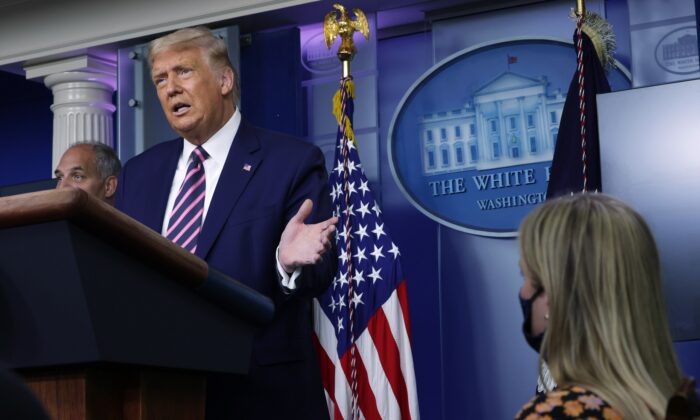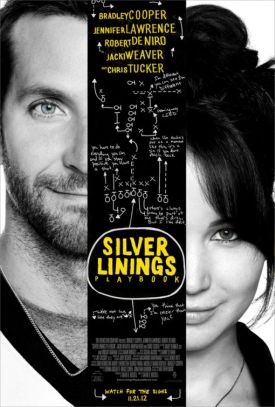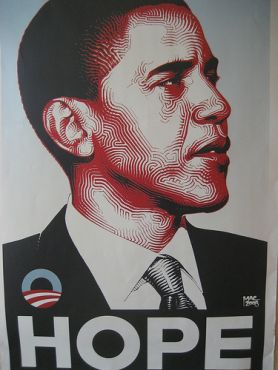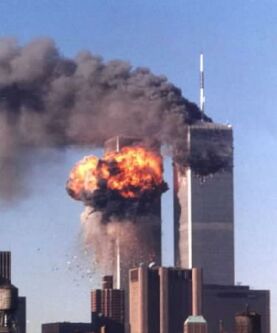The Madness of the Media as They Consider Trump
/The Epoch TimesThis article appeared in The Epoch Times of September 19, 2020 under the headline: “The Madness of the Media as They Consider Trump”
Some years ago, long before anyone outside of Donald Trump’s immediate family thought of him as a serious candidate for the presidency, I wrote a book called Media Madness.
Though it’s now out of print, I think I can say without immodesty that it anticipated some of the media madness we are seeing in the age of Trump.
But if the book were to be reissued today, it would have to be rewritten to take account of a much more severe strain of the same illness.
I wrote it at around the time that the late columnist Charles Krauthammer, a trained psychiatrist, coined the term Bush Derangement Syndrome to describe the hatred that the media felt for then-President George W. Bush and the follies that hatred engendered in the commentariat and left-leaning politicians of the day.
But my focus was on a less specific and much less well-defined malady which stemmed, as I saw it, from a species of what the French would call folie de grandeur.
The media, in other words, had even then been driven mad by self-importance. Flushed with their own success, as they saw it, in terminating the Vietnam War and the presidency of Richard Nixon and ever more locked into the habit of groupthink, they had come to believe that they were, collectively, the oracular spokesfolks for and sole possessors of “the truth.”
As such, they came to believe that the world looked to them and them alone to determine who is and who isn’t fit for public office. If by the voters’ mistake some unfit person should contrive to be elected, the media came to see it as their duty to find, or if necessary invent, some scandal by which he or she, like Nixon, could be driven from office.
All this depended on the media’s sense of their own infallibility, which couldn’t but result in a radical skewing of their moral perspective. By the time of the second Bush administration, they had already come to think that anyone who thought differently from themselves on the big important questions of the day wasn’t just mistaken but willfully perverse, even wicked.
The converse was also true: Any politician who slavishly followed the media’s party line could do no wrong and was (and is) immune from scandal, as a certain former vice president is now demonstrating.
Lies and Mistakes
The media’s belief in their own exclusive possession of “the truth” has also licensed them, in their own view at least, to call anyone with a different perspective a liar.
That is in effect what the so-called fact-checkers of The Washington Post have done with Mr Trump, though they are more squeamish than most of the president’s detractors about using the word lie and instead refer to the 20,000-odd L-words they profess to believe the president guilty of telling as false or misleading claims instead.
This is itself a false or misleading claim, as any unprejudiced look at what the supposed fact-checkers are calling false will reveal including numerous jokes, truthful exaggerations (to use Mr Trump’s own term), and unverifiable opinions with which the rabidly anti-Trump Post doesn’t agree.
Yet, you regularly read that impressive-sounding figure of 20,000 cited, both in the Post and in other papers, as fact.
Apart from media groupthink, one reason they get away with such a monstrous falsehood is that, back in the initial wave of “media madness” under President Bush, the word lie appears to have been redefined.
Remember “Bush lied, people died”? After several years of pointing out that a mistake (for example, about the existence of weapons of mass destruction in Iraq) wasn’t the same thing as a lie, I took the trouble to look up lie in the dictionary — several dictionaries, in fact. Imagine my surprise when I discovered that, while I wasn’t looking, somebody had decided that a mistake could be a lie, and all but one of the dictionaries I consulted agreed.
In other words, if party A claims, however plausibly, that he hasn’t lied but only made a mistake, party B can now point to any of several dictionaries as the authority for saying, not only that he did lie but that, as a gift to the fact-checkers, he lied again in denying that he had lied.
This redefinition according, as the lexicographers would no doubt claim, to common usage was of course highly advantageous to a scandal-hungry media forever proclaiming their own exclusive relationship with “the truth.”
Their own mistakes, for example about the Russian collusion narrative, remain mistakes (though they don’t even acknowledge this much) while those of their victims can be called lies at will.
Media Favor ‘Rage’
Indeed, once you are marked as a scandalous person by the media, as Mr Trump has been for the past four years, you don’t even need to make a mistake to be accused, not only of lying but of murder.
In Bob Woodward’s new book, provocatively titled Rage, the Washington Post’s ace reporter of Watergate fame purports to have identified the latest, if not the biggest, Trump scandal in the president’s revelation that he knew of the deadliness of the COVID-19 virus in early February but chose to play down its seriousness to avoid a panic.
Now, we know that the pro-panic views of the media, numerous prominent Democrats, and even the CDC only date from much later in the spring.
Moreover, it’s by no means clear even now that the near-total lockdown that panic eventually inspired was the best approach to the disease. I myself believe that measures could have been taken to protect the most vulnerable, the sick, and the elderly, without shutting down most of the country’s economy.
But the media, following the lead of the Chinese communists, are now all for panic. Therefore, they insist they have always been all for panic and that anyone (such as President Trump, for example) who was ever against panic not only lied by expressing an opinion contrary to the media’s but must be considered to have on his hands the blood of more than 200,000 plague victims.
I know because I read it on Twitter.
In French, la rage means rabies, the madness of a mad dog. I wonder what kind of madness the title of Mr Woodward’s book refers to? And who is really suffering from it?
Discover more from James Bowman
Subscribe to get the latest posts to your email.






